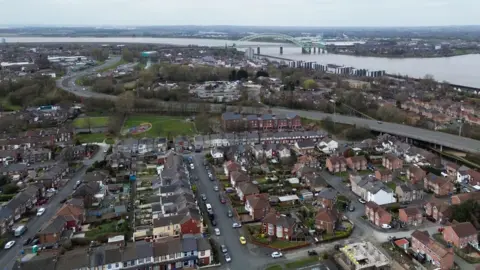The Runcorn and Helsby by-election represents a significant political event in the UK, occurring concurrently with local elections in various regions of England. In this context, it was initiated by the resignation of former MP, Mike Amesbury, who faced legal consequences for assaulting a constituent. This decision has garnered considerable attention, as it marks a pivotal moment for both the Labour Party and its leader, Sir Keir Starmer.
Mike Amesbury’s conviction in early 2025 led to his subsequent incarceration at HMP Altcourse in Liverpool. Following his release on bail after three nights, a judge suspended his prison sentence for two years. This period saw increasing pressure on Amesbury to resign from his position in the House of Commons after losing his affiliation with the Labour Party, resulting in him representing himself as an independent MP. Ultimately, he consented to step down, prompting the need for a by-election.
The constituency of Runcorn and Helsby was newly established for the upcoming general election planned for July 2024. It encompasses areas previously under the jurisdiction of Weaver Vale, Halton, and parts from the former constituencies of Ellesmere Port and Neston, Eddisbury, and City of Chester. The constituency comprises the towns of Runcorn, Frodsham, and Helsby, along with several villages, contributing to a complex geographical and demographic landscape. The population stands at approximately 93,520, with a notable youth demographic, where nearly 21% are under 18, followed by 57% in the working-age group, and 21% above 65.
The electoral history showcases that Runcorn and Helsby was created specifically for the 2024 general election, with Amesbury previously serving as the MP for Weaver Vale since 2017 before it was dissolved. In the recent election, Amesbury secured a significant victory for Labour with 52.9% of the vote, surpassing Reform UK and the Conservatives, who trailed behind. Following his tenure, Halton had consistently remained a Labour stronghold since the constituency’s inception in 1983 under the leadership of Derek Twigg.
The importance of the current by-election cannot be overstated, as it marks Starmer’s first attempt to solidify Labour’s power in a competition arena perceived to be one of their safest seats. With several national concerns such as tax increases outlined in the recent Budget and significant global discussions involving trade relations with the US and challenges pertaining to the Ukraine conflict, this election serves as a litmus test for the Labour party’s continued support. Recent polling suggests that while Labour remains a frontrunner, other parties, including Reform UK and the Conservatives, may capitalize on recent political dynamics.
As the date for the by-election approaches, 15 candidates have stepped forward to contest the seat. This diverse slate includes representatives from various parties, including:
– Catherine Anne Blaiklock (English Democrats)
– Dan Clarke (Liberal Party)
– Chris Copeman (Green Party)
– Paul Duffy (Liberal Democrats)
– Peter Ford (Workers Party)
– Howling Laud Hope (Monster Raving Loony Party)
– Sean Houlston (Conservatives)
– Jason Philip Hughes (Volt UK)
– Alan McKie (Independent)
– Graham Harry Moore (English Constitution Party)
– Paul Andrew Murphy (Social Democratic Party)
– Sarah Pochin (Reform)
– Karen Shore (Labour)
– John Stevens (Rejoin EU)
– Michael Williams (Independent)
The presence of multiple candidates signifies the constituency’s electoral diversity and reflects the dynamic political landscape in Runcorn and Helsby. The outcome of this by-election holds substantial implications for the Labour Party’s agenda moving forward, as well as for the other parties involved seeking to gain a foothold in this new constituency. The unfolding narrative surrounding the Runcorn and Helsby by-election will be closely watched, as it encapsulates broader trends in UK politics and public sentiment in a rapidly evolving political environment.



